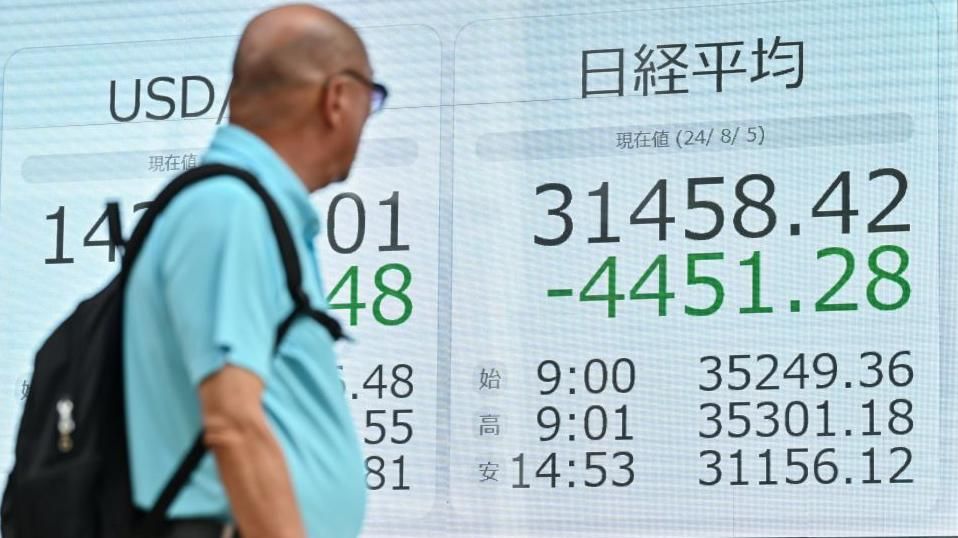
In a dramatic turn of events, global stock markets have experienced significant turbulence, with Japan’s Nikkei 225 index leading the way in a downward spiral. As of the latest updates, the Nikkei 225 has suffered a notable slump, shedding substantial points and reflecting a broader pattern of market instability across Asia.
Recent reports indicate that the Nikkei 225 index, which tracks 225 large companies on the Tokyo Stock Exchange, has hit its lowest point in several months. This decline comes amidst a backdrop of growing investor anxiety and a series of negative economic signals from the region. Analysts suggest that several factors are contributing to this downturn, including mounting concerns over global economic growth and persistent uncertainties surrounding geopolitical tensions.
The downward trend in Japan’s stock market is part of a larger trend affecting Asian markets overall. The Hang Seng Index in Hong Kong and the Shanghai Composite Index in China have also faced declines, reflecting widespread investor apprehension across the continent. This broader market slump highlights a period of heightened volatility, as investors grapple with a confluence of economic and political uncertainties.
Economic indicators from Japan have been particularly alarming. Recent data points to a slowdown in economic growth, with key sectors such as manufacturing and exports showing signs of weakening. The Japanese economy, heavily reliant on exports, has been under pressure from global trade tensions and fluctuating demand from key markets.
Adding to the market’s woes are concerns over the potential impact of upcoming central bank policies. As major central banks around the world, including the Bank of Japan, signal potential shifts in their monetary policies, market participants are bracing for possible changes that could further impact market stability. The Bank of Japan’s decisions, in particular, are closely watched given their potential influence on both domestic and global financial conditions.
Investors are also keeping a close eye on the broader economic landscape, including ongoing trade disputes and their potential effects on global supply chains. The interplay between economic policies and market reactions underscores the complex dynamics at play in today’s interconnected global economy.
As market participants attempt to navigate these choppy waters, the focus will be on forthcoming economic reports and central bank announcements. Analysts and investors alike are keen to assess whether the recent downturn is a temporary blip or a harbinger of more significant economic challenges ahead.
In summary, the current state of the Nikkei 225 and other Asian stock indices reflects a period of significant uncertainty and volatility. With key economic indicators showing signs of strain and central bank policies in flux, the path forward remains unclear. Investors and analysts will continue to monitor these developments closely, seeking clues about the potential trajectory of global markets.


0 Comments